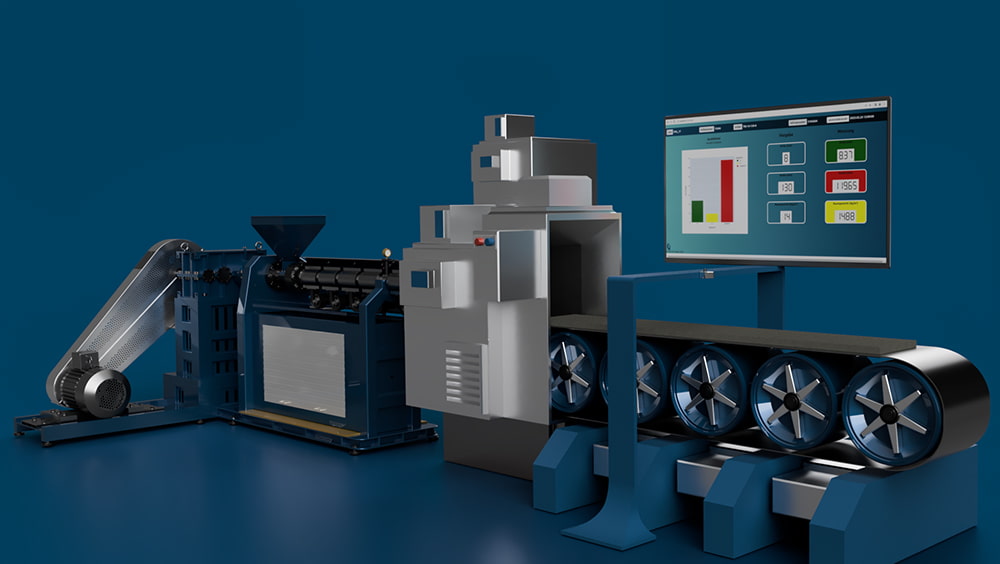New measuring system for extrusion quality assurance opens up new perspectives on the verge of market launch
Together with two partner companies, the SKZ Plastics Center has launched a project to develop a radar-based measuring system that precisely and efficiently monitors the quality of plastic sheets during the extrusion process. The project is funded by the German Federal Ministry for the Environment, Nature Conservation and Nuclear Safety (BMUV) to develop and promote the potential of digitalization for greater resource conservation and efficiency.

Schematic of the radar inspection system used in sheet extrusion. (Photo: SKZ)
SKZ, TRILITEC and VendOs commercialize radar-based measurement system for 100% inspection
In cooperation with TRILITEC GmbH, a leading provider of radar-based measurement technology, and VendOs Industrietechnik GmbH, a specialist in industrial automation, SKZ has launched a joint development project. The focus of the project is the development of a radar-based measuring system that precisely and efficiently monitors the quality of plastic sheets during the extrusion process. The non-destructive, non-contact, 100% coverage and completely hazard-free method of operation enables real-time monitoring. It enables the earliest possible detection of externally visible or internal defects so that immediate adjustments can be made. Target customers are manufacturers of continuous products regardless of material - plastic, gypsum, wood and glass products can all be inspected.
Combined transmission and reflection setup
During the project, a comprehensive analysis of the plastic sheets is performed using radar waves. A combined transmission and reflection setup is used. This enables the reliable detection of defects such as blowholes and foreign material inclusions. This also facilitates the use of recycled materials. The use of narrow-band and modular microwave radar systems enables cost-effective solutions with high lateral resolution - a clear advantage over the previously available and costly inline measurement technology.
Self-learning techniques
Automatic defect detection is based on machine learning techniques, especially deep learning. These self-learning techniques are based on artificial neural networks and are particularly suitable for precise pattern recognition in images.
"Significant reduction in material waste
The joint step paves the way for modern and efficient plastics production. By working together, SKZ, TRILITEC and VendOs are giving new impetus to the industry and helping to meet the challenges of the future. "By avoiding rejects in production, resources are used efficiently, which leads to a significant reduction in material waste and complaint costs. This saves money. This resource-saving approach not only promotes sustainable and digital production, but also strengthens the profitability of the local plastics industry," says Pierre Pfeffer, Senior Scientist in the field of non-destructive testing at SKZ.
Read more about non-destructive testing at SKZ


